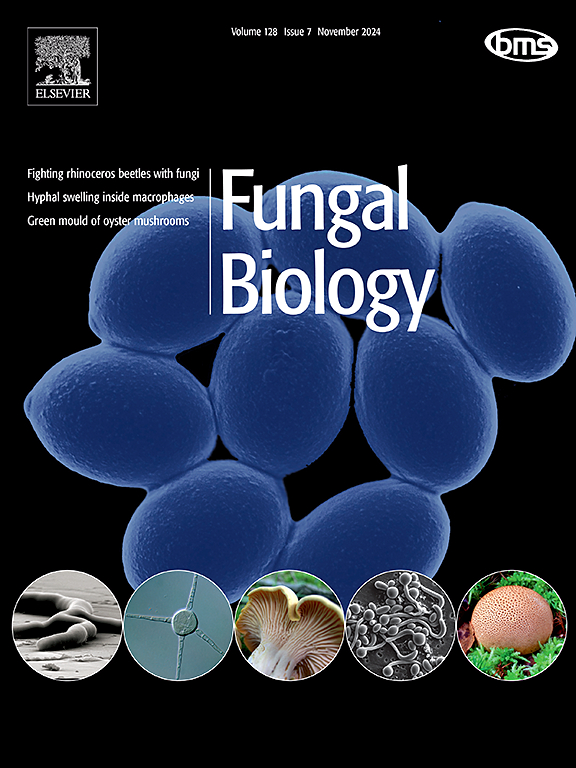ZnCl2 inhibits postharvest disease on pear and crabapple by inducing autophagy of Penicillium expansum
IF 3
3区 生物学
Q2 MYCOLOGY
引用次数: 0
Abstract
Penicillium expansum is a phytopathogen causing postharvest disease of many fruits, which has led to enormous losses. Therefore, it is of great significance to take efficient methods to control this notorious phytopathogen. In this study, zinc, an essential trace element for human body, has been found to be able to effectively inhibit the P. expansum mycelial growth on PDA and burst of ROS in the fungal hyphae. Additionally, the transmission electron microscope (TEM) analysis indicated that zinc induces autophagy and autophagic vacuoles in P. expansum. Furthermore, the zinc inhibits the activity of six key enzymes (PDH, SDH, CS, IDH, MDH, KGDH) in TCA pathway to inhibit the growth of P. expansum. The decrease of ATPase activity indicated that the function of mitochondria in P. expansum was destroyed after the treatment of zinc. Finally, the sodium alginate (SA)@ZnCl2 coatings were verified to be effective in inhibiting the postharvest disease of pear and crabapple. Collectively, all the above results showed that zinc had great efficacy in suppressing P. expansum on fruit surfaces by inducing autophagy.
ZnCl2通过诱导膨胀青霉自噬抑制梨和海棠采后病害
膨胀青霉是一种引起果实采后病害的植物病原体,给果实造成了巨大的损失。因此,采取有效的措施控制这种臭名昭著的植物病原体具有重要意义。本研究发现,锌作为人体必需的微量元素,能够有效抑制膨松菌菌丝在PDA上的生长和菌丝中ROS的爆发。透射电镜(TEM)分析表明,锌可诱导自噬和自噬空泡形成。此外,锌通过抑制TCA通路中6种关键酶(PDH、SDH、CS、IDH、MDH、KGDH)的活性,抑制了白豆的生长。atp酶活性的降低表明锌处理后,大叶参线粒体功能被破坏。最后,验证了海藻酸钠(SA)@ZnCl2涂层对梨和海棠采后病害的抑制效果。综上所述,锌通过诱导果实自噬来抑制膨化棘球绦虫在果实表面的生长。
本文章由计算机程序翻译,如有差异,请以英文原文为准。
求助全文
约1分钟内获得全文
求助全文
来源期刊

Fungal biology
MYCOLOGY-
CiteScore
5.80
自引率
4.00%
发文量
80
审稿时长
49 days
期刊介绍:
Fungal Biology publishes original contributions in all fields of basic and applied research involving fungi and fungus-like organisms (including oomycetes and slime moulds). Areas of investigation include biodeterioration, biotechnology, cell and developmental biology, ecology, evolution, genetics, geomycology, medical mycology, mutualistic interactions (including lichens and mycorrhizas), physiology, plant pathology, secondary metabolites, and taxonomy and systematics. Submissions on experimental methods are also welcomed. Priority is given to contributions likely to be of interest to a wide international audience.
 求助内容:
求助内容: 应助结果提醒方式:
应助结果提醒方式:


